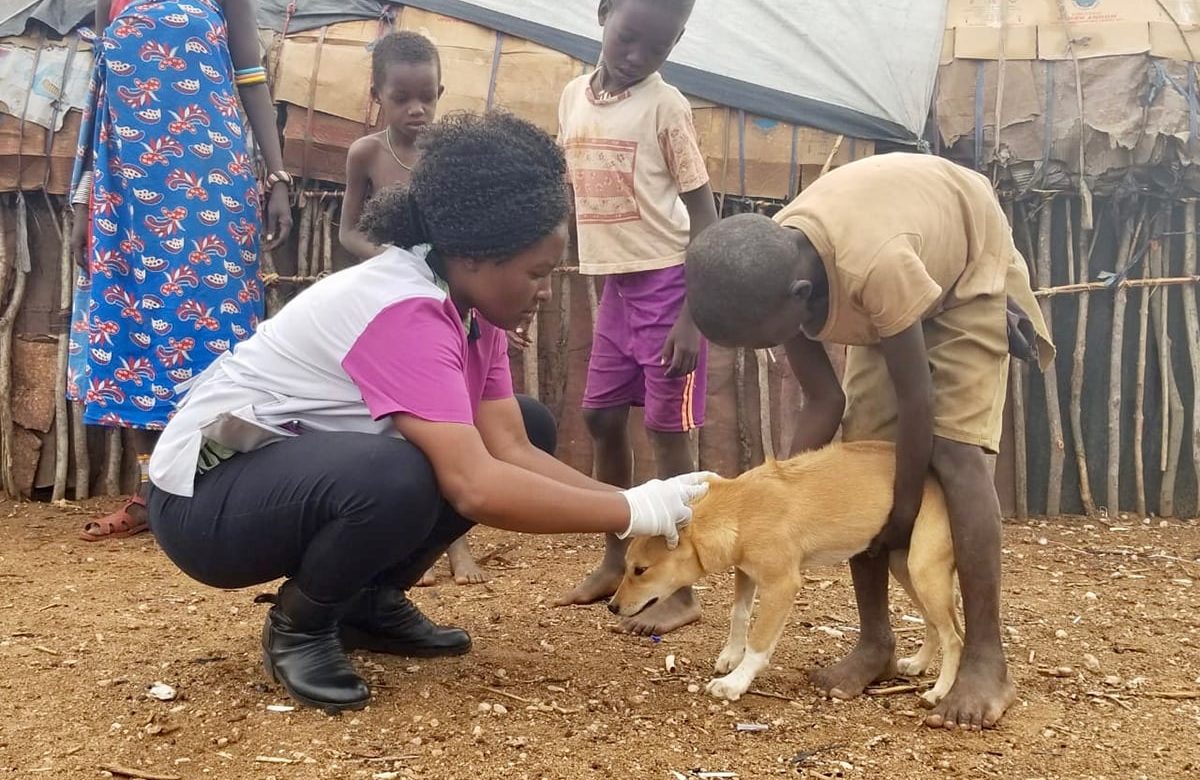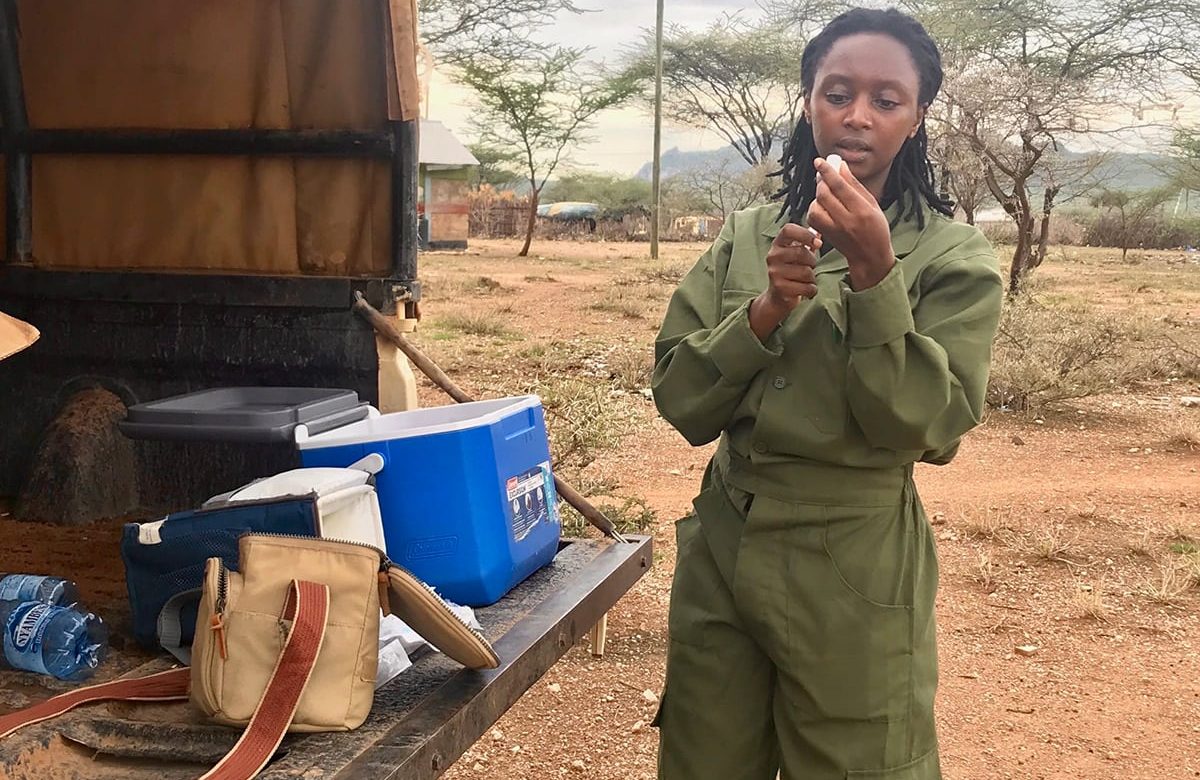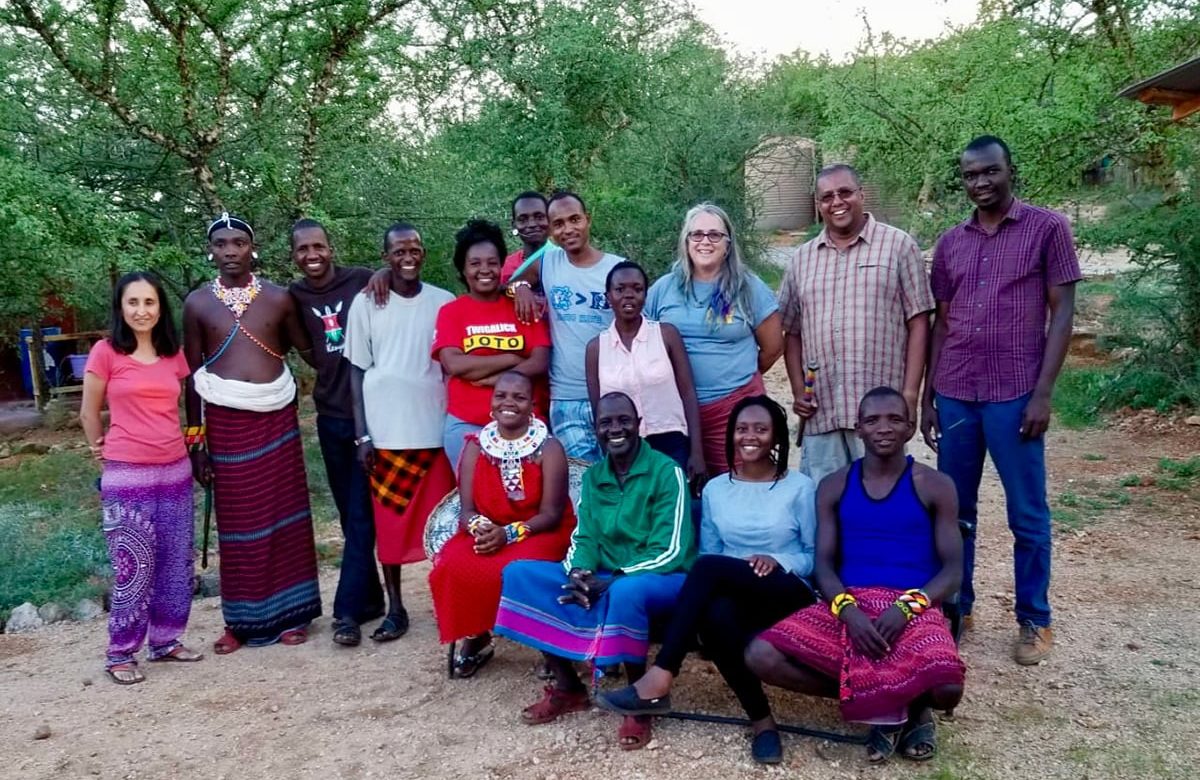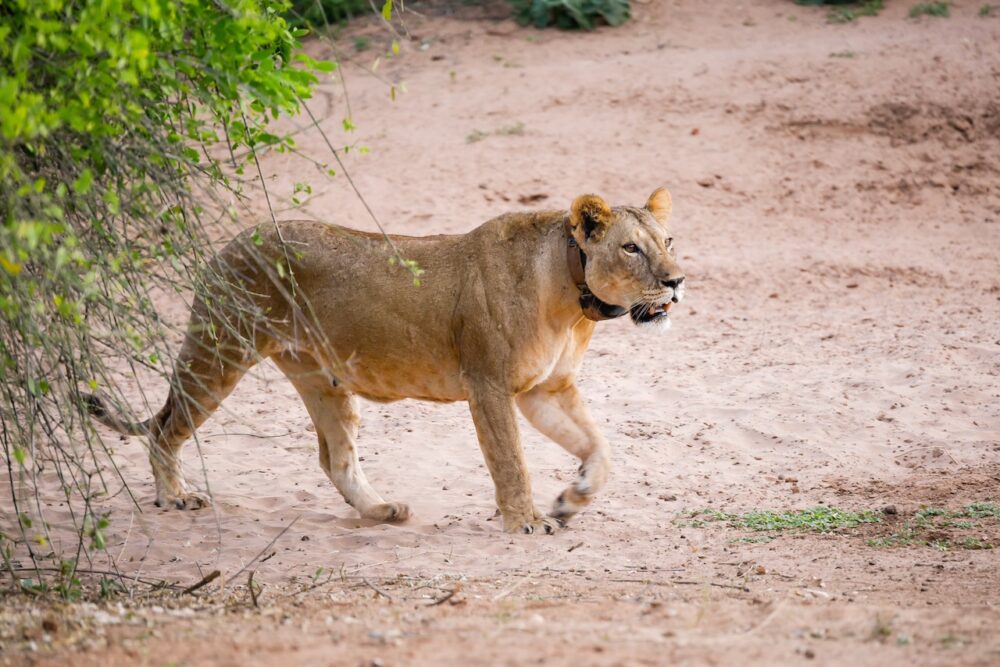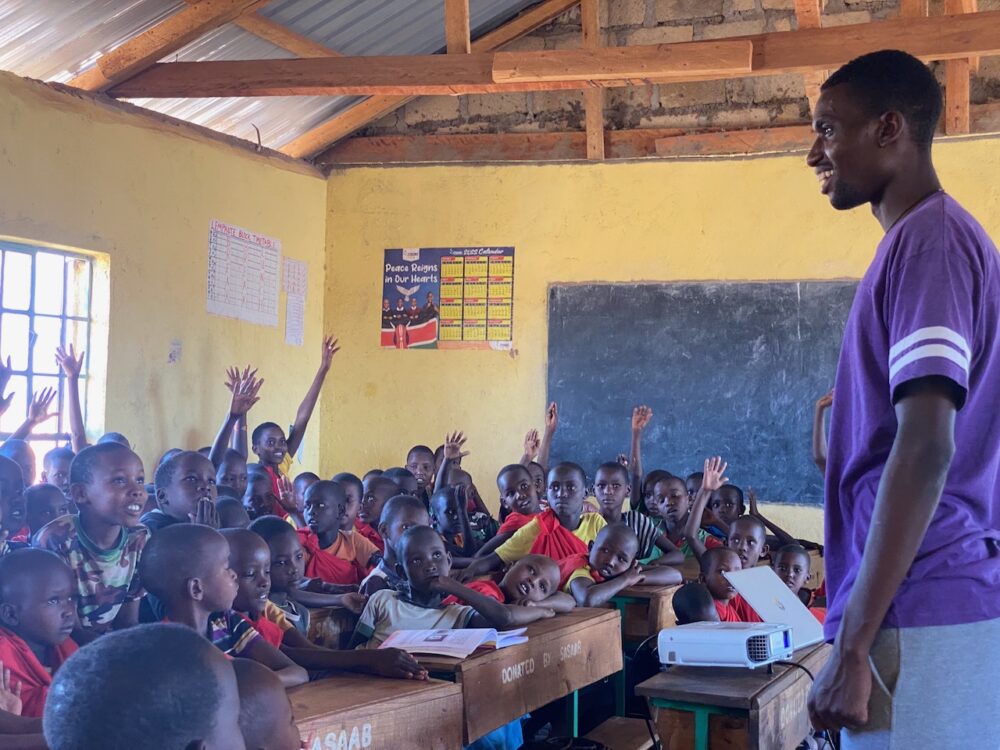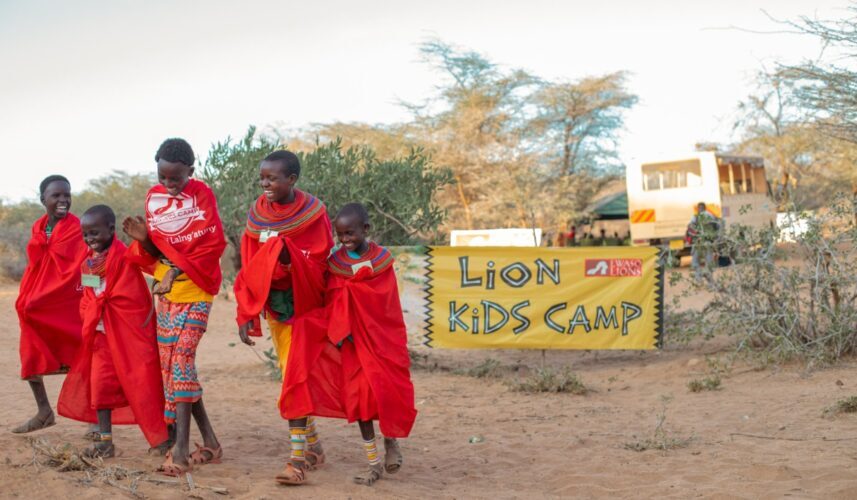In early October, our field team located a very sick African wild dog (also known as painted dogs in southern Africa) in Samburu, manifesting with diarhoea, discharges from eyes and isolated from his group (normally wild dogs stay in a pack). Vets from the Kenya Wildlife Service followed up quickly and it was confirmed through laboratory diagnosis that the wild dog had canine distemper – an extremely challenging and fast spreading disease. Over the course of a week, we sadly confirmed 5 dead wild dogs in the area. Our field teams spent days searching for this well known pack but the roads were few, the bush thick and huge rain storms arrived increasing the challenges of navigating the terrain.
Meanwhile, upon recommendation from the Samburu County Government Vet department and the Kenya Wildlife Service, we decided to do a quick ring-vaccination programme in all villages surrounding the dead wild dogs. We rallied together quickly with partners (Samburu County Government vets, Action for Cheetahs – Mary Wykstra, ANAW, Animal Care Clinic – Dr Likoniwalla, Daktari Wildlife Foundation – Dr Chege, and Kalama & Westgate Conservancies – managers, wardens, chief and ward admin) and thanks to support we received from two amazing friends and supporters of Ewaso Lions in the U.S., and the Foundation for International Aid to Animals, we were able to purchase rabies and distemper vaccines, mobilise vets from Nairobi and Archers Post, and inform all community members across 6 villages in Westgate and Kalama Conservancies about the vaccination programme. Vets arrived and in 2 days, we were able to vaccinate 320 dogs, cats and donkeys. It was a huge undertaking but one that was extremely well received by the community and we are so grateful for everyone’s efforts in this including from other conservationists and private vets from around the world. Although we had not planned to do this until January (stay tuned for Kura’s Pride), we recognized the urgency and managed to pull this programme together.
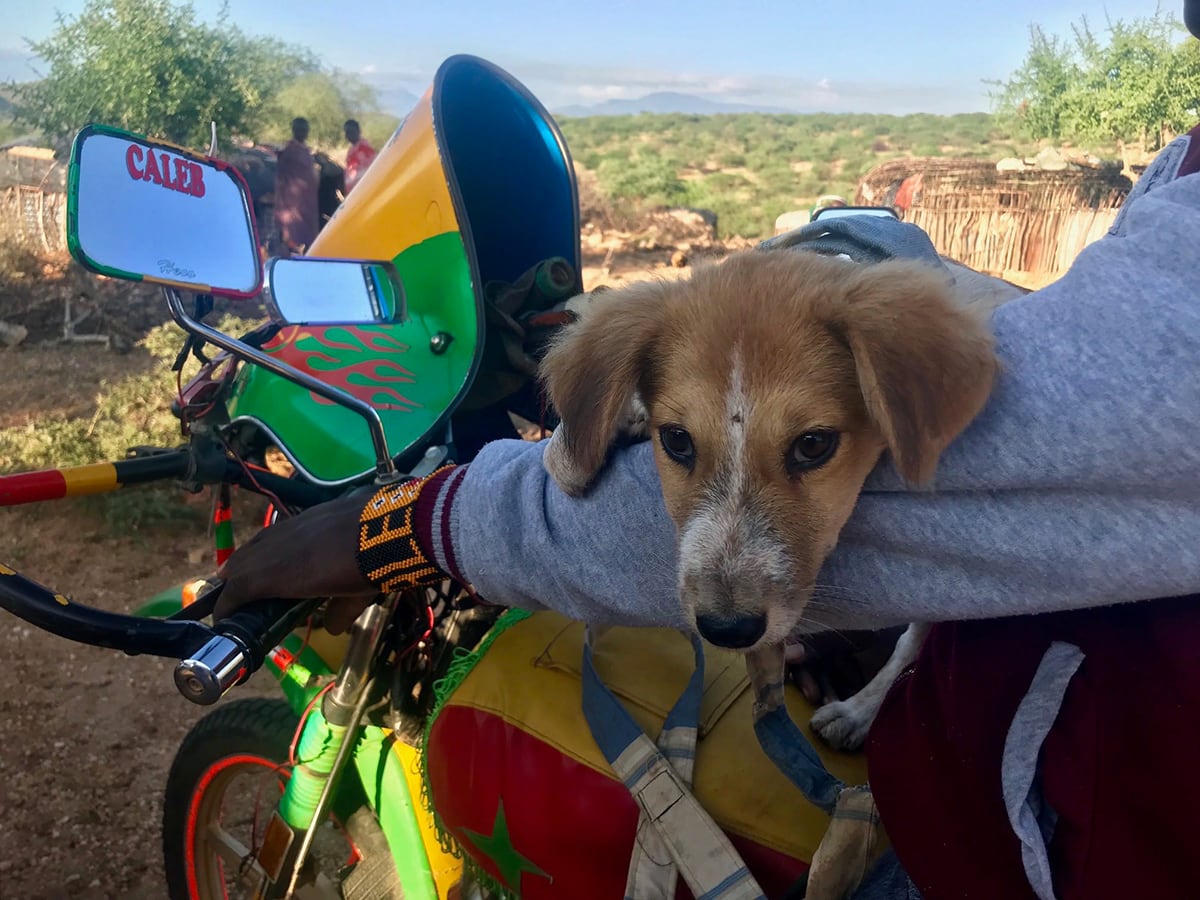
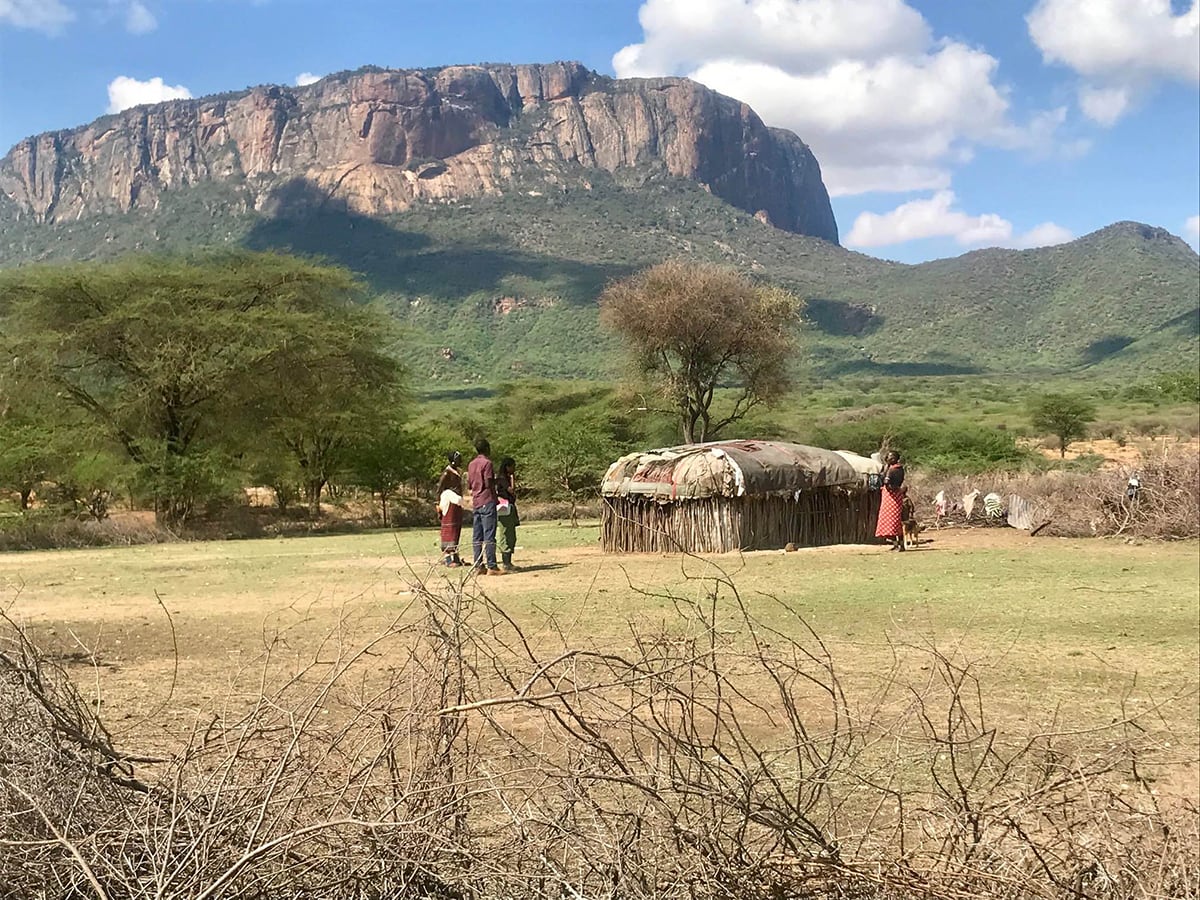
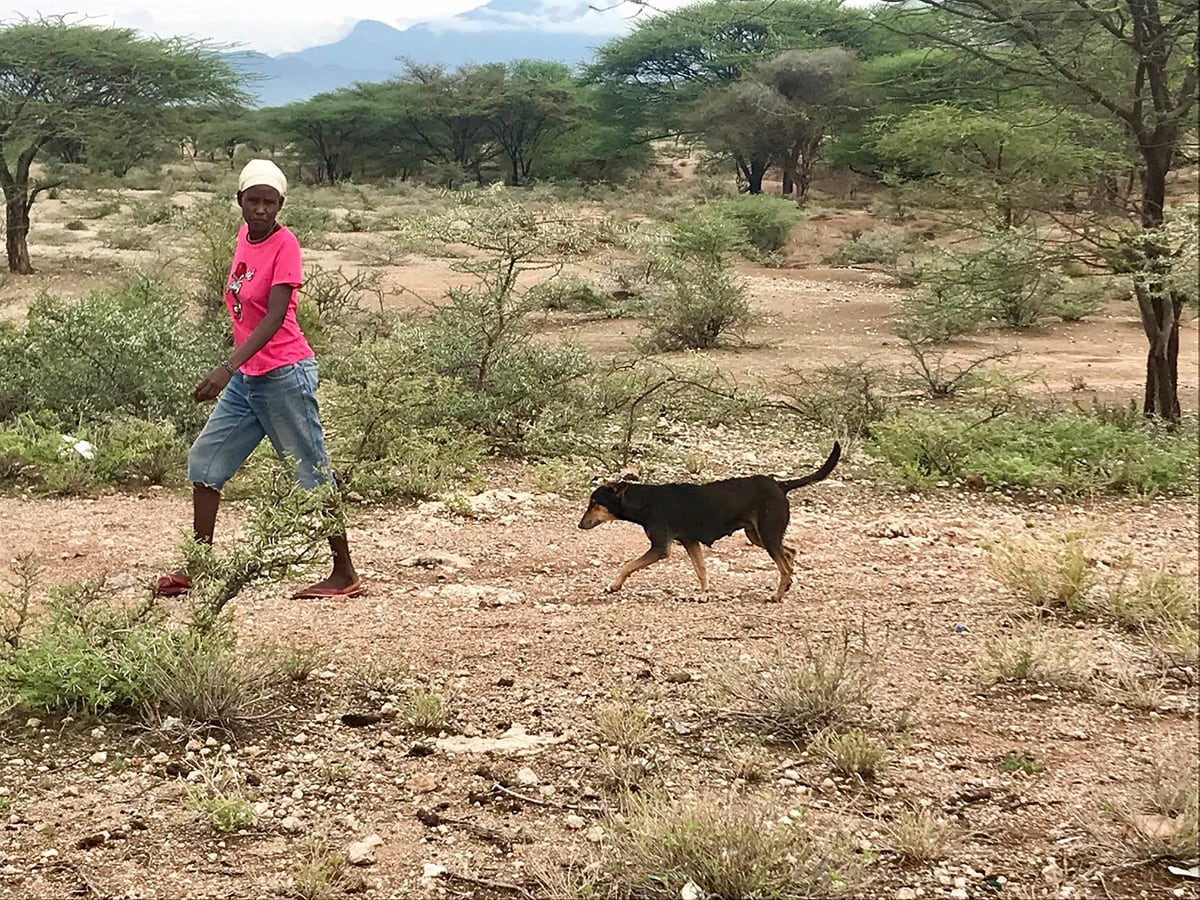
Since then, 14 wild dogs were sighted – giving us hope that the rest of the pack were not infected and may pull through. This is a key pack in the region and after losing most of the wild dogs in 2017 to distemper, we are keen to ensure less disease transmission to wild carnivores (lions can die from canine distemper too) and a healthier population overall of Samburu’s wildlife.
